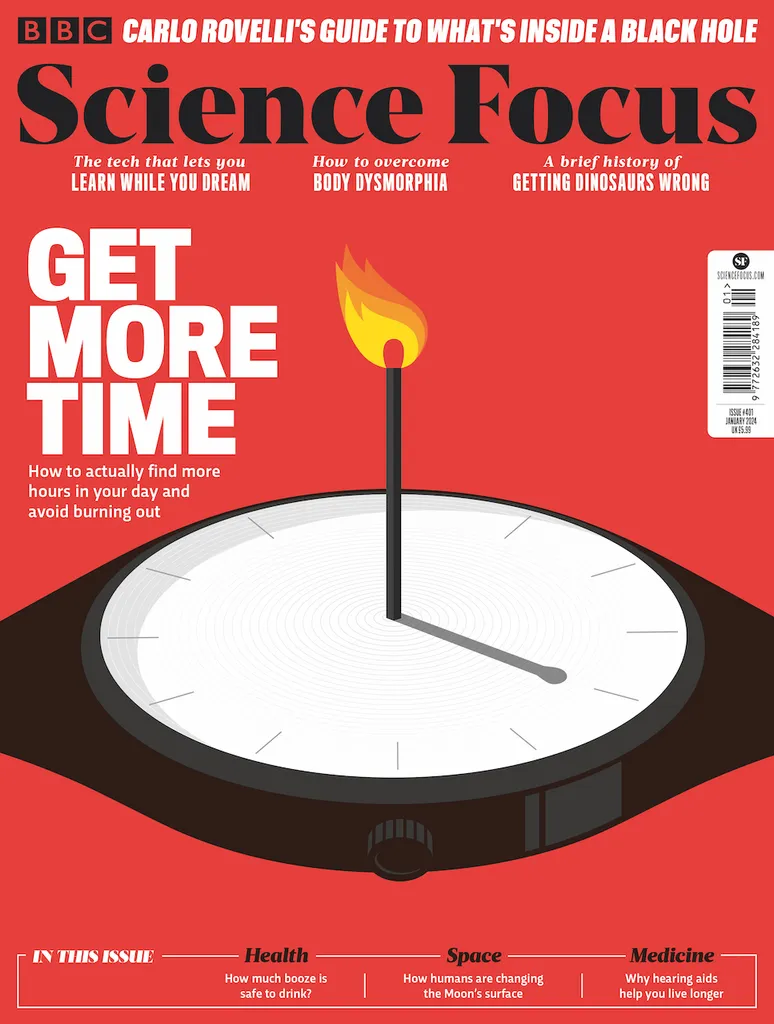
Dinosaurs
Big and scary they may have been, but dinosaurs were by no means lumbering brutes. The more we learn about them, the more we see just how misguided our early reconstructions were. This glossy picture feature compares historical depictions with our most up-to-date knowledge - and the differences are jaw-dropping.
White holes
Perhaps the most surprising scientific discovery of the last decade is that the Universe is teeming with black holes. They’ve been detected in a surprising variety of sizes: some with masses only a bit larger than the Sun, others that are billions of times larger. But what happens when a black hole dies? Carlo Rovelli reveals how they could rebound into a new, reflected form; white holes.
Dry January
Sobering science tells us that no amount of booze is good for our health. So should we rethink the way we drink?
Body dysmorphia
If you have body dysmorphia – the all-consuming obsession with perceived flaws in your looks – you're not alone; it's thought to affect one in five young people. How is tech changing the way we see ourselves? We take a closer look at this often debilitating condition and have put together a practical guide to help you worry less.
Plus
- Meta Quest 3: Tech expert Alex Hughes straps on the Meta Quest 3 for a test drive. Having yet to encounter a truly viable at-home VR experience, could this headset finally herald the future of virtual reality?
- Do you have a genius dog? Scientists have pinned down the characteristics of a unique type of genius dog, and it all comes down to how well they know their toys. If your pooch can retrieve its toys by name rather than chewing them to pieces, you may have a genius on your hands.
- Yellowstone eruption: National Park. Natural Wonder. Existential Threat? There are around 1,500 active volcanoes on Earth, 170 of which can be found in the United States. Among these, few have captured our imaginations, or provoked our collective sense of existential dread like Yellowstone. So, does the threat from the supervolcano live up to the hype?
Issue 401 on sale 19 January 2024
Subscribe to BBC Science Focus Magazine
Don’t forget that BBC Science Focus is also available on all major digital platforms. We have versions for Android, Kindle Fire and Kindle e-reader, as well as an iOS app for the iPad and iPhone.
